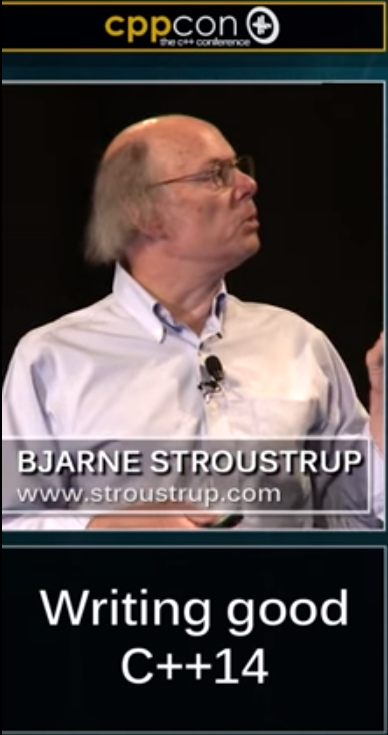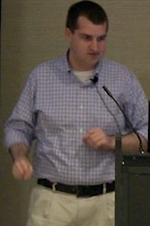Video available: Bjarne Stroustrup, "Writing Good C++14" -- CppCon 2015 opening keynote
 CppCon is in full swing, and once again all the sessions, panels, and lightning talks are being professionally recorded and will be available online -- about a month after the conference, because it takes time to process over 100 talks!
CppCon is in full swing, and once again all the sessions, panels, and lightning talks are being professionally recorded and will be available online -- about a month after the conference, because it takes time to process over 100 talks!
However, because of the importance of Bjarne's open keynote announcements on Monday, the team has pulled out the stops to process his video and get it up on YouTube (and maybe soon also Channel 9 for areas where YouTube is not available). It's there now, so if you couldn't be at CppCon on Monday in person, check it out:
Writing Good C++14 (YouTube) (slides)
by Bjarne Stroustrup, CppCon 2015 opening keynote
The team says that they may also fast-track the other daily keynote/plenary sessions as well, some of which are directly related to Bjarne's keynote. If that happens, we'll post links here too. In the meantime, enjoy Bjarne's groundbreaking talk -- as one CppCon attendee and longtime C++-er said, "this is one of the most exciting weeks for C++ I can remember." We agree.

 The slides from Bjarne Stroustrup's keynote this morning have now been posted at
The slides from Bjarne Stroustrup's keynote this morning have now been posted at  Have you registered for CppCon 2015 in September? Don’t delay –
Have you registered for CppCon 2015 in September? Don’t delay –  The title is confusing, the article is not and should be read!
The title is confusing, the article is not and should be read!